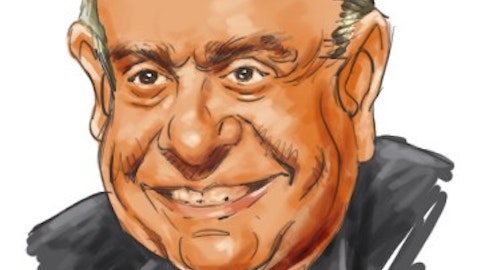There’s always something going on with Chesapeake Energy Corporation (NYSE:CHK). The giant gas & oil company never seems to get tired of surprising its shareholders and noteholders alike. Just a couple of months ago – Carl Icahn, the famous activist investor, first disclosed a major equity stake in the company following a 30% plummet in the share price, then came a sudden departure of its dominant and frivolous CEO, Aubrey McClendon, and now the company is catching headlines again. This time around it’s about a clash between the interests of bondholders to be paid upfront and the interests of shareholders to avoid a forced sale of highly lucrative assets.

To be paid or not to be paid?
The story de jour is about an early redemption of the company’s $1.3 billion 6.775% bond series maturing on March 2019. Chesapeake Energy Corporation (NYSE:CHK) wanted to redeem the notes early at par (100 cents). The noteholders, on the other hand, weren’t too crazy about being paid early. They contended that the company’s plan would shortchange them because if such redemption is to take place, it should be at the currently prevailing bond price at around $106, and not at par. This issue turned into an ugly dispute and the court was left to decide on this pending matter.
Who benefits the most from this plan?
There’s only one obvious winner here and that’s Chesapeake Energy Corporation (NYSE:CHK)’s shareholders. By redeeming the notes early, the company will save about $400 million in payments. That’s not to be taken lightly- for a company with a debt balance of $13 billion, of which $4 billion is due to be paid back this year, every dollar counts. Whether the company will actually have to pay the extra $400 million or not remains to be seen.
So, what’s the lesson?
I believe there are two interesting lessons in this strange fiasco:
- “Callable bonds” (bonds that could be redeemed early by the company) usually end up as one big mess for bondholders. The company always seems to ‘call’ (redeem) them at the worst possible time for investors, and when they are redeemed – there is always a question of price. Chesapeake Energy Corporation (NYSE:CHK) bondholders can attest to that.
- Try and avoid investing in shares of gas & oil companies with massive debt and similar massive assets. When pushed against the wall with pending bond payouts such companies are likely to dispose of otherwise lucrative assets. This will hinder the profitability of the company and will have a direct impact on shareholders. You can try and spot the next troubled candidate by carefully reviewing the balance sheet. Take SandRidge Energy Inc. (NYSE:SD) for example. This energy company has equity valued at $2.9 billion with total debt almost twice that amount. With assets worth almost $10 billion, SandRidge’s shareholders face a possible liquidation that will hurt their share price. Another company worth paying attention to is Plains Exploration & Production Company (NYSE:PXP). The company’s equity is currently worth only $6 billion, while the company owes $11.5 billion to bondholders. With assets in the amount of $17 billion, it’s a pretty good guess that the company will go through some kind of liquidation in the near future.
The Foolish bottom line
Chesapeake Energy Corporation (NYSE:CHK) is a profitable company with mountains of debt and similar mountains of lucrative assets. When these two components clash, it’s likely to be the former that prevails. Bondholders will end up getting paid, at the expense of shareholders, following a pricey liquidation of income producing assets. In order to avoid such a painful course of events, shareholders must recognize and avoid such dangerous situations ahead of time. Otherwise, shareholders might find themselves paying a premium for assets that will be liquidated away, right into the hands of bondholders with the first glimpse of a cash flow deficit in the company.
The article The Trouble Of Getting Paid Early originally appeared on Fool.com and is written by Shmulik Karpf.
Copyright © 1995 – 2013 The Motley Fool, LLC. All rights reserved. The Motley Fool has a disclosure policy.

